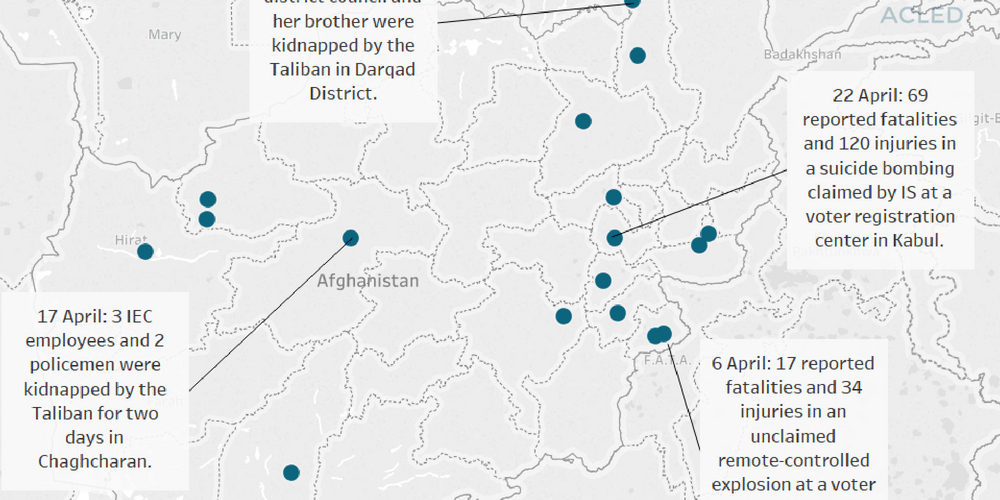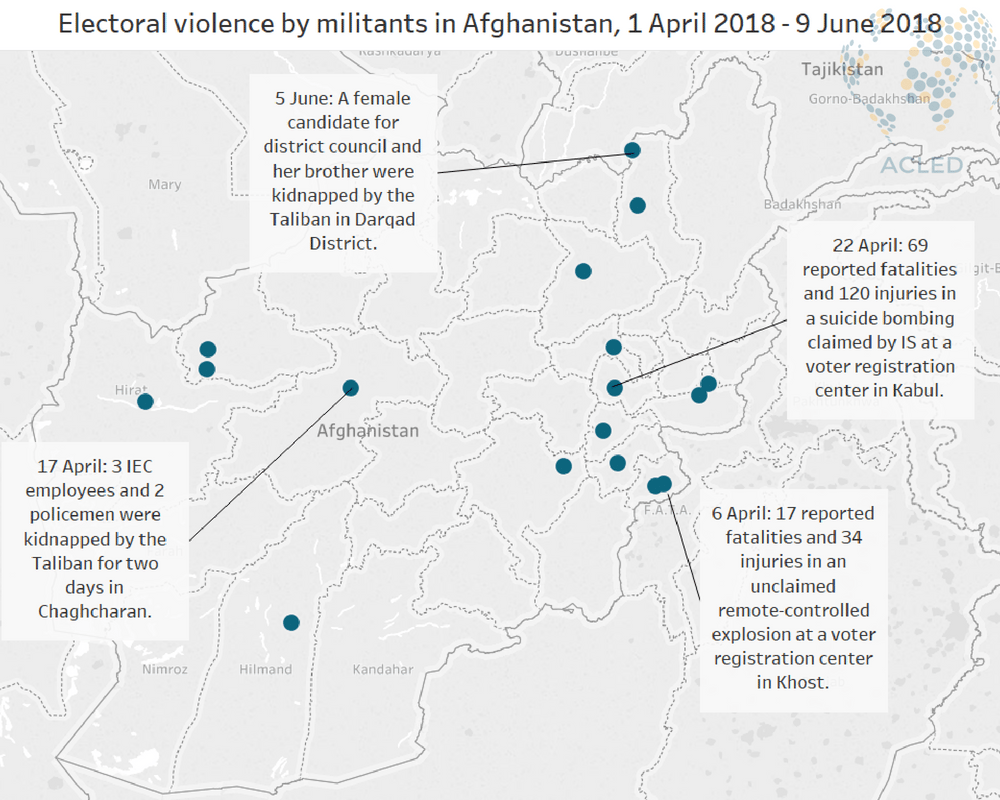Parliamentary elections in Afghanistan have been delayed for nearly three years due to security concerns and debates over election processes (Reuters, 1 April 2018). With the date now set for 20 October, officials are rushing to try to register as many voters as possible. Both officials of the Independent Election Commission and potential voters have become targets in a new wave of electoral violence perpetrated by militant groups. However, non-state actors, such as the Islamic State (IS) and the Taliban, are increasing their attacks on voter registration centers and election officials in advance of the upcoming Parliamentary elections in October in an attempt to delegitimize the central government and democracy as a whole.
Since the new election date was announced on 1 April, the Taliban and IS have reportedly bombed voting registration centers, assassinated election officials, and kidnapped state forces guarding voting centers. The violence is more prevalent in the eastern half of the country — affecting Khost, Kabul, Takhar, and other provinces — though there have also been incidents in western provinces, such as Herat and Badghis. More than 100 civilian and security force personnel have reportedly been killed since 1 April as a result of this violence. Many of these fatalities occurred in a single event, where 69 people were reportedly killed and 120 injured in a bombing claimed by IS at a voting center in Kabul on 22 April.
IS has claimed responsibility for a large number of election related in attacks in both Iraq and Libya as well, continually making it clear that the group condemns all democratic elections (Long War Journal, 7 May, 2018). For the Taliban, on the other hand, at least part of the reason for their involvement in election violence is the belief that the elections as a whole are illegitimate while foreign forces are active in the country (Tolo News, 16 April 2018). The differing behavior of the two groups regarding elections is in line with their different overarching strategies and approaches to violence as a means for reaching their goals (for more on this, see this past ACLED piece).
With more than four months remaining until the election, the Afghan government will need to convince its citizens that it is capable of holding free and fair elections and safeguarding them while doing so. If it cannot protect voters and successfully carry out an election, the legitimacy of the government and its democratic institutions will suffer.
Find an explanation of ACLED’s methodology for monitoring the conflict in Afghanistan here.







